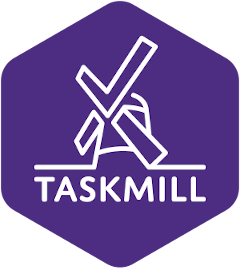“Let’s test in production!” are those famous last words ensuring your place in the headlines. When building a product in an agile manner, timing and sizing the testing correctly is important. The Agile Testing training helps find a good rhythm, choose the right tools, and understand what needs to be tested.
The training is built in modules to help you find time for learning. It also includes plenty of practical exercises. Typically, the modules are organised weekly, allowing time for practicing and getting prompt answers to any questions.
Below you will find the basic structure of the training, but it can also be customized to suit the needs of your own project.
Why Agile Testing Training?
Quality assurance is an integral part of building any product. After completing the Agile Testing training, you will be able to:
- Plan testing for your own product and determine its scope
- Write high-quality test cases
- Perform testing
Who is the Agile Testing training for?
- Parts 1 and 2 of the training are suitable for the entire organization involved in product development to gain an understanding of agile development testing. It’s important for everyone to understand what, why, and how to test the product.
- Parts 3-5 are specifically designed for individuals involved in testing, whether in an agile team or performing acceptance testing. These modules provide practical knowledge and skills for conducting actual testing.
Part 1: Welcome to Testing
The first part serves as an introduction to the fundamental principles of modern testing for the entire organization. Testing should start early and be continuous to avoid building new functionality on top of existing errors. The sooner issues are identified, the cheaper they are to fix.
Content:
- What is quality assurance?
- When does testing begin?
- Presenting functionality before coding
- Retesting
- Improved skills leads to better implementation
- Visualising the current status
- Acceptance practices
Duration: 3 hours
Part 2: Test Strategy
After the second part, you will be able to create a test strategy. How should you test your own product? What should be tested?
Content:
- How to perform testing?
- What is important to consider (e.g., performance, security)?
- What is not included in testing?
- Test environments and data
- Who does what in testing?
- Testing tools
Duration: 3 hours
Part 3: Observations
The focus of the third part is on observations and how to describe them clearly and reproducibly. All observations should be recorded. An observation can be a defect, a development suggestion, or an inconsistency.
Content:
- Fixing defects as part of the development process
- Specification defects
- Programming defects
- Writing a good observation report
- Defect lifecycle
- What not to fix
Duration: 4 hours
Part 4: Test Cases
The fourth module concentrates on test case definition. If you only test what has been specified, you may end up with a non-functioning product. People often unintentionally use a product differently or with less expertise than the person who defined it. That’s why negative testing or exploratory testing is an essential part of quality assurance.
Content:
- Testing levels
- Positive and negative tests
- Testing techniques
- Ways to define test cases
- Executing test cases
- Test lifecycle
- Review and exploratory testing as testing techniques
- Defining automated test cases
Duration: 4 hours
Part 5: Test Automation
The fifth module focuses on test automation, its development, and maintenance. Test automation helps ensure the construction of a high-quality end product and maintains quality even when adding new functionality.
Content:
- Implementing automation from the beginning
- Discovering deficiencies during automation development
- Managing regression volume
- Test coverage
- Tools and reporting
- Test maintenance
Duration: 4 hours
Request a training quote for your organisation
Would you like this training for your own team? The training can also be customised to suit your organisation’s specific needs. Request a quote for this training!
